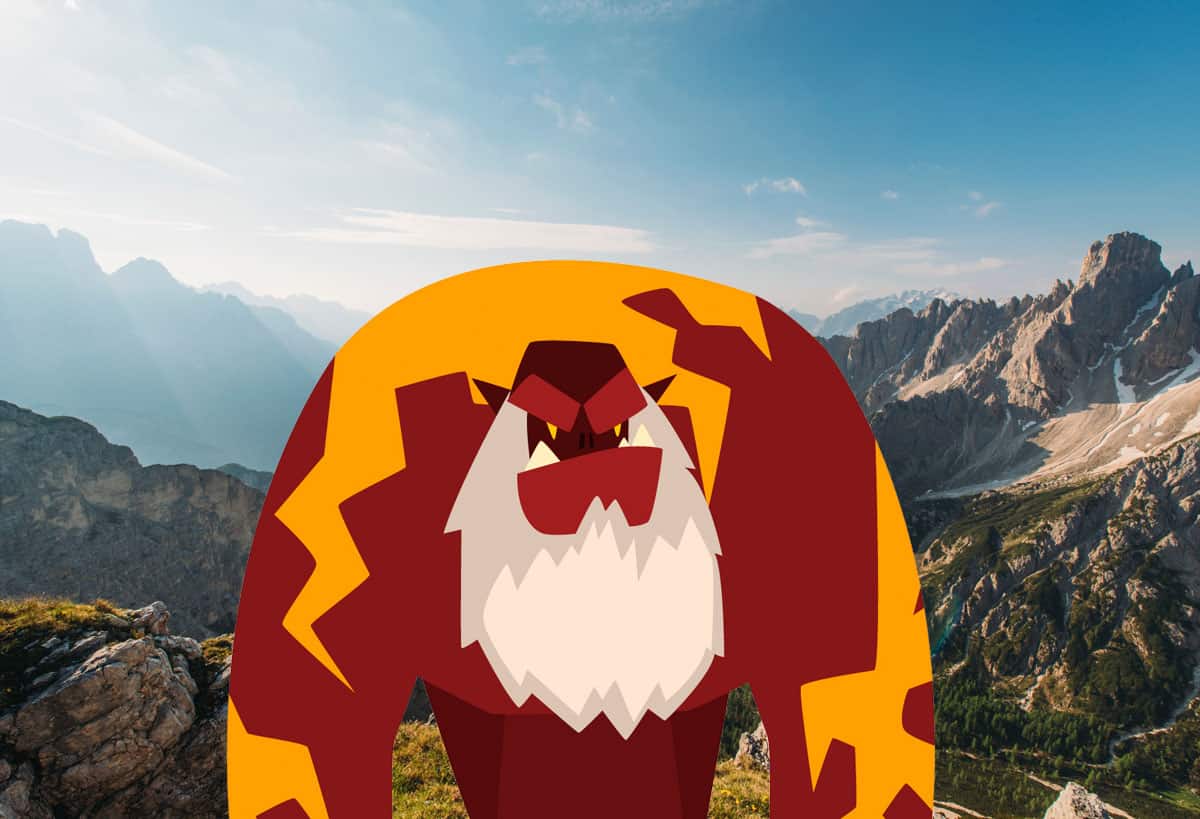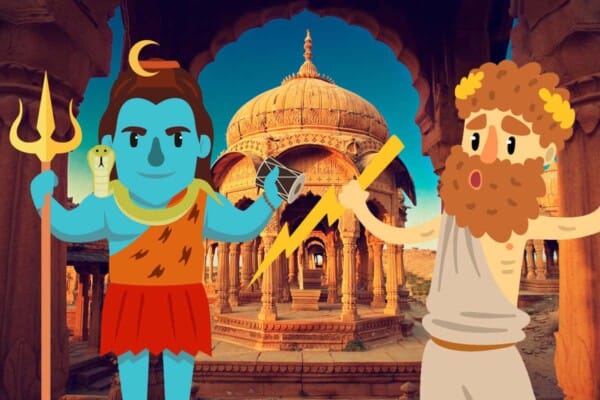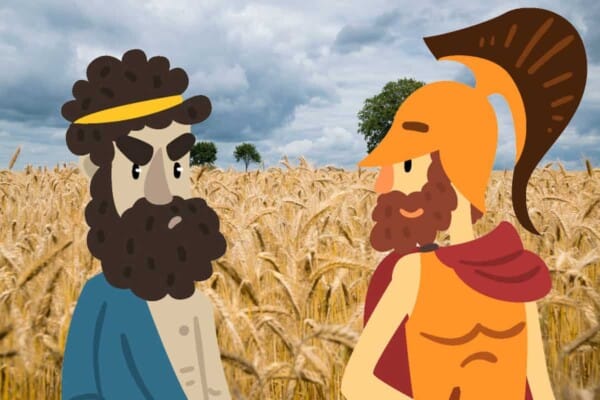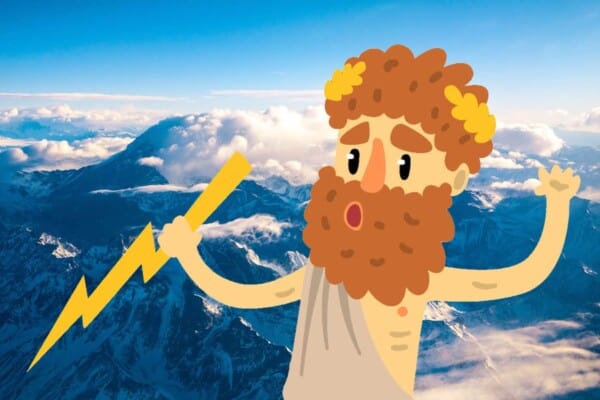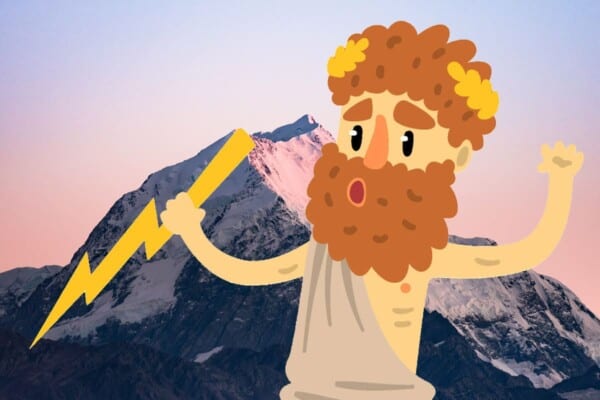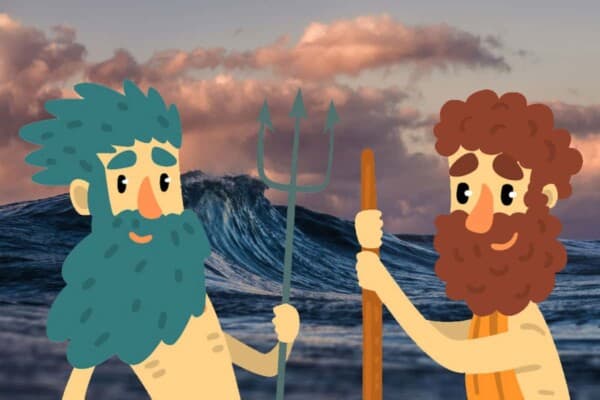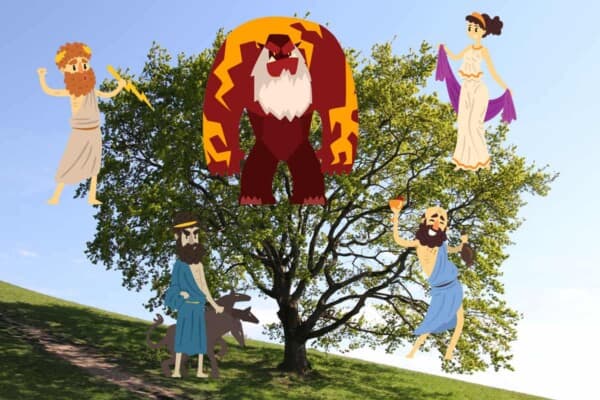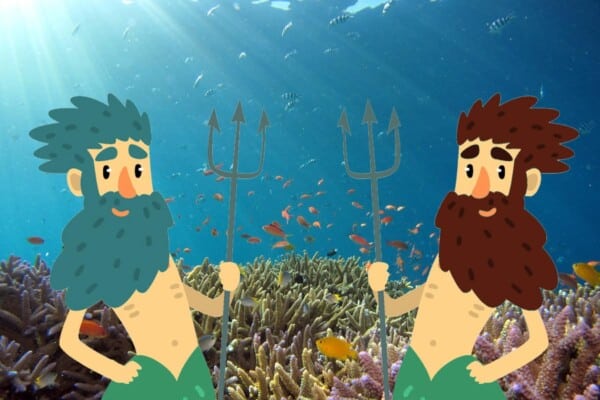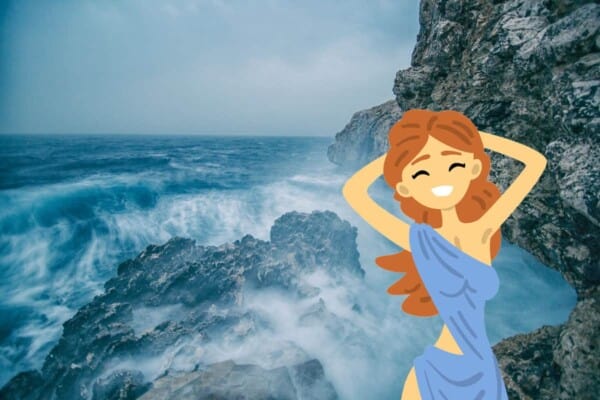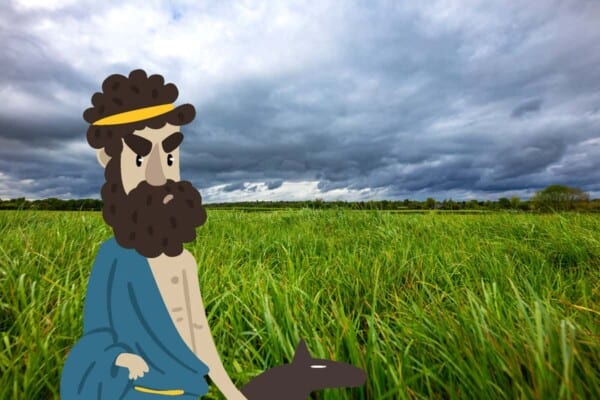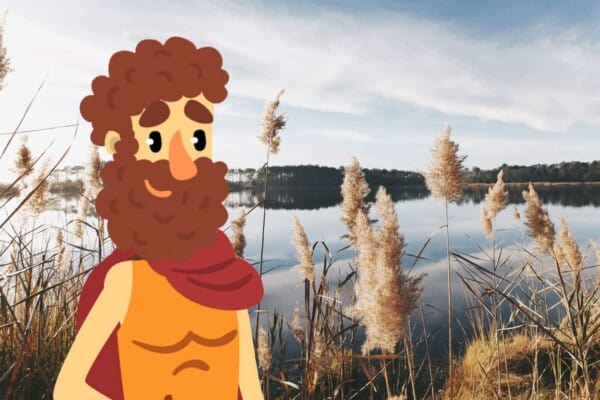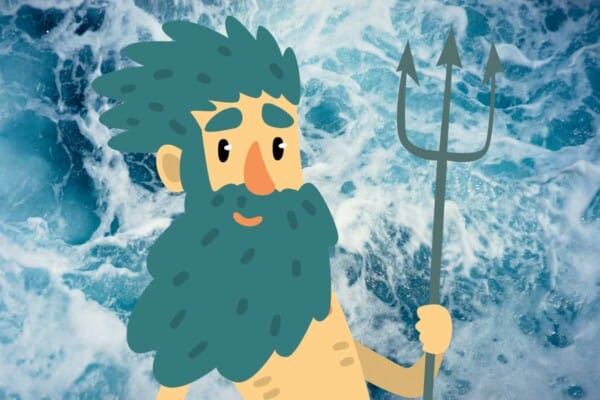In Ancient Greek religion, the Titans were the predecessors and precursors to the Olympian gods. The primordial being Gaia and her son Ouranos married and their first twelve children – Oceanus, Coeus, Crius, Hyperion, Iapetus, Theia, Rhea, Themis, Mnemosyne, Phoebe, Tethys, and Kronos – became the Titans. These became the parents of gods, nymphs, and a second generation of Titans.
The Titanomachy, when Zeus and his siblings wrested father from his cruel father Kronos, is one of the most well-known of the ancient myths. The following are some facts you might not know.
Interesting Facts About the Greek Titans
1. Gaia and Ouranos had more children, both together and apart
Gaia’s first three children were Ouranos (sky), Pontus (sea), and the ten Ourea (mountains). Gaia made love to her other son, Pontus, and birthed the primordial sea gods, Nereus, Phorcys, Ceto, Thaumas, and Eurybia. With the primordial Aether (wind), she gave birth to Aergia, the personification of sloth. Antaeus was her son by her grandson Poseidon. Finally, the monstrous Typhon resulted from a union with Tartarus.
With Ouranos, Gaia birthed the twelve original Titans named above. She also mothered the Gigantes, the Cyclopes, and the hundred-handed Hecatoncheires, who Ouranos imprisoned.
Ouranos himself fathered several children with his blood after his genitals were shorn off by Kronos. These were the Meliae (ash nymphs), the Erinyes (Furies), and Aphrodite.
2. Most of the Titans married their siblings
| Titan | Spouse / Major consort | Children from that union |
| Kronos | Rhea (Titan, full sister) | The original six Olympian gods (Zeus, Hera, Demeter, Hestia, Hades, Poseidon) |
| Oceanus | Tethys (Titan, full sister) | Three thousand river nymphs and three thousand river gods |
| Coeus | Phoebe (Titan, full sister) | Leto and Asteria (second generation Titanesses) |
| Hyperion | Thea (Titan, full sister) | Helios, Eos, and Selene (the personifications of the sun, dawn, and moon) |
| Iapetus | Clymene/Asia (Nymph, niece by Oceanus and Tethys) | Atlas, Prometheus, Epimetheus, and Menoetius (second generation Titans), Anchiale (a nymph) and Buphagus (an Arcadian hero) |
| Crius | Eurybia (half-sister through Gaia) | Astraios, Pallas, and Perses (minor gods) |
| Themis | Zeus (god, nephew) | The Horae (goddesses of the hours) and The Moirai (the Fates) |
| Mnemosyne | Zeus (god, nephew) | The Nine Muses |
3. Ouranos, Kronos, and Zeus were all part of a grizzly legacy of fatherhood
Ouranos locked his younger children with Gaia away, leading to her plotting with Kronos to take over power. Kronos sheared off his father’s genitals and became king of the Titans. Later, Kronos swallowed his children and was overthrown by Zeus, who locked him in Tartarus.
Zeus swallowed his pregnant wife Metis after, like his father, he got a prophecy that his child would defeat him. However, once Athena was born anyway, the cycle was complete and she became his favorite daughter.
4. Many of the Titans fought on the side of the Olympians during the Titanomachy, working for the defeat of their brother Kronos
The Titans who sided with the gods were spared from Tartarus. This included all six original female Titans (especially the gods’ mother, Rhea). Oceanus sent his offspring to fight for Zeus, and he and his wife Tethys cared for an injured Hera.
All of the second-generation Titans fought for the gods, except for Atlas and Menoetius. These two were punished harshly, with Menoetius sent to Erebus and Atlas doomed to bear the sky on his shoulders.
5. Several Titans played important roles in later Olympian myths
Most famously, Rhea and Leto were closely linked with the gods. Leto was the mother of Zeus’s son and daughter, the twin Olympians Artemis and Apollo, and she also fought for the Trojans in the Trojan War. Rhea, meanwhile, was a messenger of Zeus, aided the gods, and raised her nephew Dionysus.
6. Prometheus earned the ire of Zeus because of his love for humanity
Prometheus enjoyed bringing knowledge to humans that was forbidden by the gods. His most heinous crime was bringing mankind fire, for which Zeus chained him to a rock and had an eagle tear out his liver every day only to have it painfully regenerate at night.
7. Zeus’s son Heracles eventually freed Prometheus
The half-human hero, later a god, came across the bound Titan during his Trials. With Zeus’s permission, he killed the eagle and set Prometheus free.
8. Zeus eventually released Kronos and Iapetus from Tartarus, according to some myths
In these stories, Kronos became the ruler of the Islands of the Blessed after accepting Zeus’s rule. In other stories, they remained imprisoned forever.
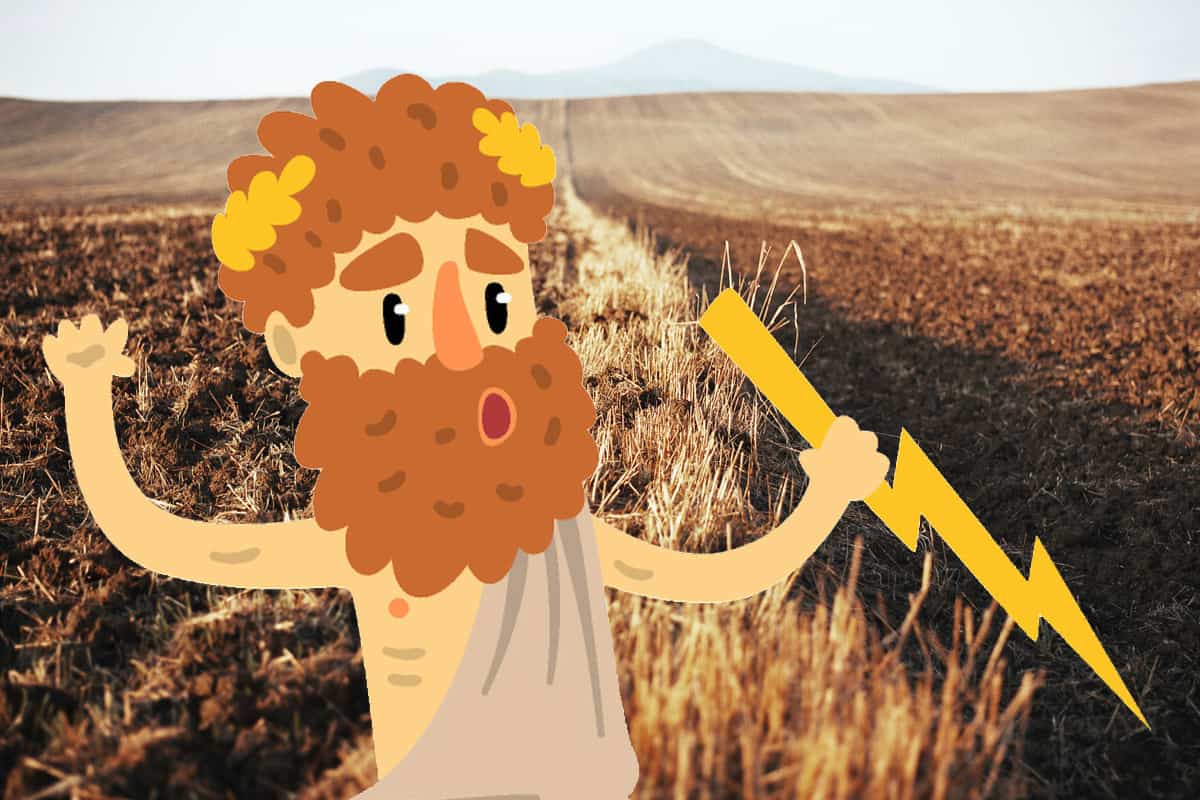
9. Three of the Titans became consorts of Zeus
Themis, Mnemosyne, and the second-generation Titaness Leto, all bore children for the king of the Olympian gods.
10. Hyperion and Thea’s children Helios and Selene, the personifications of the sun and moon, were the firsts cousins once removed of the gods worshipped in their name
These were Apollo (god of the sun) and Artemis (goddess of the moon), the children of Leto and the grandchildren of Phoebe and Coeus.
11. Epimetheus was also punished in Prometheus’s stead by Zeus
Though Epimetheus, like his brother, was on the god’s side, Zeus got back at Prometheus by creating the first human woman and gifting her to Epimetheus as a wife. Pandora, as she was called, was perfect – but she released sin and pain into the world when she was tricked into opening her box.
12. The Titanomachy was recalled in the war against Typhon, a monstrous serpentine child of Gaia born after the Gigantomachy
Typhon was the father of monsters, and though he was not a Titan, he shared many characteristics. His attempt to overthrow Zeus also resulted in a war, the Typhonomachy, When Typhon was defeated, he, like Kronos, was sentenced to be thrown into Tartarus for eternity.
Final thoughts
The Titans served as both an origin point for the gods and an example of their overwhelming power. Interestingly, Zeus isn’t often found correcting his own mistakes, but when he begins to replicate his father – such as when he swallowed Metis is prevent Athena’s birth – the cracks began to show.
Contents
- Interesting Facts About the Greek Titans
- 1. Gaia and Ouranos had more children, both together and apart
- 2. Most of the Titans married their siblings
- 3. Ouranos, Kronos, and Zeus were all part of a grizzly legacy of fatherhood
- 4. Many of the Titans fought on the side of the Olympians during the Titanomachy, working for the defeat of their brother Kronos
- 5. Several Titans played important roles in later Olympian myths
- 6. Prometheus earned the ire of Zeus because of his love for humanity
- 7. Zeus’s son Heracles eventually freed Prometheus
- 8. Zeus eventually released Kronos and Iapetus from Tartarus, according to some myths
- 9. Three of the Titans became consorts of Zeus
- 10. Hyperion and Thea’s children Helios and Selene, the personifications of the sun and moon, were the firsts cousins once removed of the gods worshipped in their name
- 11. Epimetheus was also punished in Prometheus’s stead by Zeus
- 12. The Titanomachy was recalled in the war against Typhon, a monstrous serpentine child of Gaia born after the Gigantomachy
- Final thoughts

